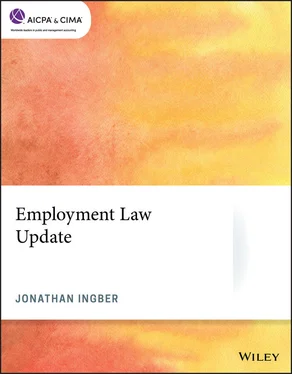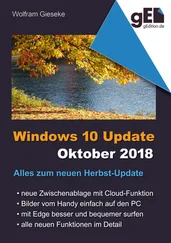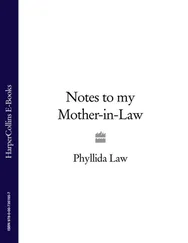 Exhibit 2-3 A social media policy that passes muster
Exhibit 2-3 A social media policy that passes muster
The NLRB's Acting General Counsel issued three memos on social media use at work, the last of which was issued on May 30, 2012. This memo includes a copy of the Walmart social media policy, which is the only policy that the NLRB's Acting General Counsel has approved in its entirety. Although a number of commentators have warned against blindly copying the Walmart policy — principally because it allows the company to discipline employees for off-duty conduct, which is illegal in California and several other states, and increases the level of control over employee conduct, which can actually add to an employer's liability — the policy is nonetheless instructive, as are the Costco and EchoStar decisions. The NLRB memo and a copy of Walmart's policy attached to the memo can be found at https://www.nlrb.gov/case/11-CA-067171.
On August 18, 2016, the NLRB issued its decision in the “social media policy” case involving Chipotle Services LLC d/b/a Chipotle Mexican Grill. The case was decided by an administrative law judge in March 2016, after which Chipotle and the NLRB filed exceptions. Here are the key takeaways from the NLRB's decision and parts of the ALJ's decision not addressed by the NLRB:
A social media policy that prohibits “improper use” of the employer's logo does not violate the employees' rights to engage in protected concerted activity (for example, wearing a t-shirt with the corporate logo in a protest of working conditions).
A social media policy that prohibits disclosure of incomplete, confidential, or inaccurate information should be accompanied by examples showing that the prohibitions do not apply to protected speech, such as the right to discuss compensation.
A disclaimer in the social media policy such as, “[t]his [social media] code does not restrict any activity that is protected by the National Labor Relations Act,” will not remediate provisions of the policy that violate the law.
A social media policy that prohibits harassing or discriminatory statements will withstand challenge, but prohibitions of “false or defamatory” statements may be overbroad and invalid, because employees have a protected right to make derogatory statements about the terms and conditions of employment. Statements that are maliciously false — in other words, knowingly false — can be prohibited.
You can see from these key points that the employer must walk a fine line balancing the social media rights and protected action and speech of employees against the employer's rights to protect the employer's intellectual property, business information, and, at least to some extent, reputation. This highwire balancing act is not for the faint of heart.
 Case study 2-3: You are the judge
Case study 2-3: You are the judge
On September 29, 2011, the EEOC filed suit against The Original Honey Baked Ham (HBH) of Georgia, Inc. on the basis that a female manager and approximately 20 other female employees at its Colorado stores had been subjected to repeated sexual comments, innuendo, and inappropriate touching by their regional manager, and that several female employees had been disciplined or terminated for complaining about their treatment. The EEOC requested back pay and compensatory and punitive damages on behalf of the class of female employees, and is seeking a permanent injunction against the company, prohibiting it from discriminating in the future, and requiring all managers and human resources personnel to undergo training in anti-discrimination law, including best practices for identifying, investigating, and eliminating sexual harassment from the workplace.
In September 2012, HBH filed a motion with the federal court seeking to compel each of the plaintiffs to produce their Facebook passwords, text messages, and other social media passwords. In support of this motion, HBH submitted copies of the manager's Facebook pages that discussed her expectations for a financial recovery in the suit, her positive outlook on her life after her employment was terminated, and her self-described “sexual aggressiveness.” HBH alleged that many of the former employees had used social media and Facebook to communicate about the lawsuit, and that those communications could lead to the discovery of admissible evidence. Based on privacy objections, the EEOC and the former employees opposed any effort to cause them to produce their social media and Facebook passwords.
You are the judge assigned to the case. Should the manager and the other employees and former employees have to produce their Facebook and social media passwords? Why or why not?
 Case study 2-4
Case study 2-4
You are the CFO of a small business. One day, the CEO comes into your office wearing a look that you recognize as one he exhibits when he is “on the warpath.” To your relief, his anger has nothing to do with you. He goes on to explain that he just got a phone call from a friend. The CEO's friend happens to be Facebook friends with several of your company's employees, including Veronica Jones. The CEO's friend told the CEO that he ought to review a copy of a post made by Veronica two days ago, and offered to send a copy to the CEO. The copy of the post revealed that Veronica had referred to the company as “incredibly poorly run,” and characterized the CEO as a “scumbag.”
The CEO hands you a copy of the post, and sure enough, the quotes are exact. The CEO is livid and asks you to fire Veronica that day.
Would you fire Veronica? Why or why not?
If you decide not to fire Veronica, what discipline would you impose instead?
1 National Labor Relations Board v. Pier Sixty, 855 F. 3d 115 (2nd Cir. 2017).
2 CareerBuilder survey results summarized at https://www.careerbuilder.com/share/aboutus/pressreleasesdetail.aspx?sd=11%2F22%2F2016…id=pr978…ed=12%2F31%2F2016. Accessed January 6, 2018.
3 TPG Insurance Services v. Superior Court, 117 Cal. Rptr. 2d 155 (2002).
4 In light of the pending Intermex case, employers with existing GPS-related policies (and those considering implementing such policies) should take the following points into consideration [Ice Miller LLP (01/05/19)])Ensure that GPS monitoring is justified by a legitimate business need.Ensure that the GPS tracking policy sets forth monitoring parameters.Effectively communicate the policy.
5 LaFleur v. Dollar Tree, 30 F. Supp. 3d 463, 475 (E.D. Va. 2014).
6 Solutions v. Busk, 135 S.Ct. 513 (2014).
7 CareerBuilder survey results summarized at https://www.tastaffing.com/news/posts/social-media-screening. Accessed January 6, 2018.
8 Costco Wholesale Corporation and United Food and Commercial Workers Union Local 371 Case 34-CA-012421 (September 7, 2012).
Конец ознакомительного фрагмента.
Текст предоставлен ООО «ЛитРес».
Прочитайте эту книгу целиком, на ЛитРес.
Безопасно оплатить книгу можно банковской картой Visa, MasterCard, Maestro, со счета мобильного телефона, с платежного терминала, в салоне МТС или Связной, через PayPal, WebMoney, Яндекс.Деньги, QIWI Кошелек, бонусными картами или другим удобным Вам способом.

 Exhibit 2-3 A social media policy that passes muster
Exhibit 2-3 A social media policy that passes muster Case study 2-3: You are the judge
Case study 2-3: You are the judge










